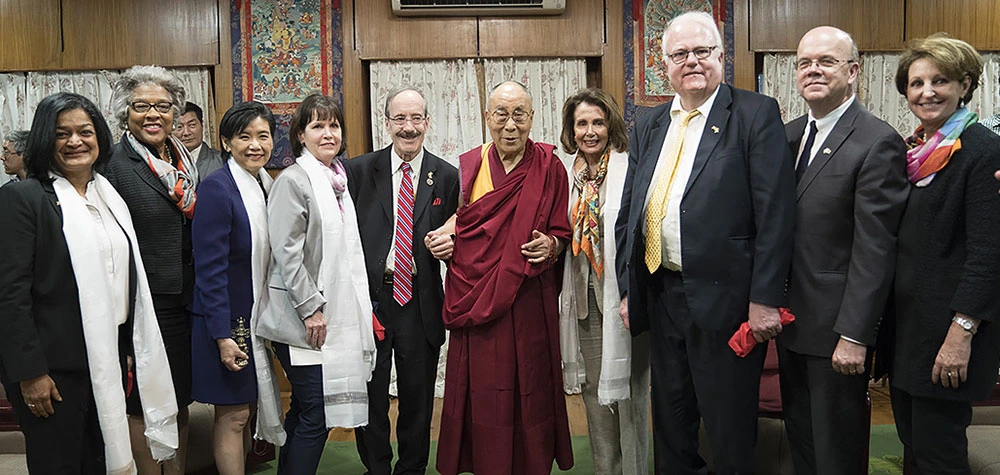In a significant and defiant declaration, the 14th Dalai Lama has reaffirmed his right to choose his own successor, reigniting tensions with the Chinese government. As the spiritual leader of Tibetan Buddhism nears 90, the question of his reincarnation — and who controls it — has become a flashpoint in the long-running China-Tibet political and religious conflict.
The Dalai Lama’s Stand: “It’s My Right, Not China’s”
Speaking at a spiritual gathering in Dharamshala, India, the Dalai Lama stated clearly:
“The reincarnation of the Dalai Lama is a spiritual matter. It is my responsibility and decision, not something to be decided by any political power.”
This statement comes amid growing speculation over his successor and where the reincarnation might be found — inside Tibet (under Chinese control) or outside, possibly in India or another free country.
The Dalai Lama, who fled Tibet in 1959 after a failed uprising against Chinese rule, has lived in exile in India for over six decades. From there, he has continued to speak for Tibetan autonomy, religious freedom, and non-violence.
China’s Reaction: Angry and Predictable
As expected, Beijing reacted with sharp criticism, calling the Dalai Lama’s claim “illegal” and accusing him of “interfering in normal religious affairs.” The Chinese Foreign Ministry reiterated its stance that all reincarnations of Tibetan Buddhist leaders must be approved by the Chinese government — a position that has been internationally criticized as political overreach.
China has long insisted it has the final say in choosing the next Dalai Lama through its “Golden Urn” process, a Qing dynasty-era system used to select high lamas — a method Tibetans widely reject as politically motivated.
Why This Matters: More Than Just Religion
At the heart of this dispute is more than just a religious issue — it’s about sovereignty, control, and identity. The next Dalai Lama is expected to carry on the Tibetan movement for freedom and preservation of culture. If China appoints its own “state-backed” Dalai Lama, many fear it would be used to legitimize Chinese rule in Tibet and silence the Tibetan independence movement.
The Dalai Lama choosing his successor from outside China — especially from within India — would be seen as a global political statement, challenging China’s authority and exposing the limits of its soft power.
The Global Perspective
Countries like the United States, European Union, and India have often supported the Tibetan cause diplomatically, though cautiously to avoid angering China. In 2020, the U.S. even passed the Tibetan Policy and Support Act, stating the choice of the next Dalai Lama must be left to Tibetan Buddhists alone.
International human rights groups have also voiced support, urging free and fair religious expression and opposing any Chinese involvement in sacred Tibetan matters.
What Happens Next?
- Dalai Lama may issue a public statement or document outlining the process for selecting his reincarnation, possibly outside Tibet.
- China could preemptively install a rival “Dalai Lama” in Lhasa to assert control.
- The global Tibetan diaspora, particularly in India, Nepal, and the West, will rally around the Dalai Lama’s choice, leading to a possible dual leadership situation.
Final Thoughts
The Dalai Lama’s bold assertion reaffirms his commitment to Tibetan spiritual independence in the face of growing political pressure. As he ages, the world is watching how this succession battle plays out — not just as a religious affair, but as a pivotal chapter in the Tibet-China struggle for cultural and spiritual autonomy.
This isn’t just about who becomes the next Dalai Lama.
It’s about who controls Tibet’s soul.
More for you
1.Shubman Gill’s Masterclass at Edgbaston: Pure Timing, No Autotune
2.Nitish Reddy Bowled After Bizarre Leave as Chris Woakes Strikes with Brilliance
3.Sri Lanka vs Bangladesh: Epic Collapse Hands Sri Lanka Dominant Win

